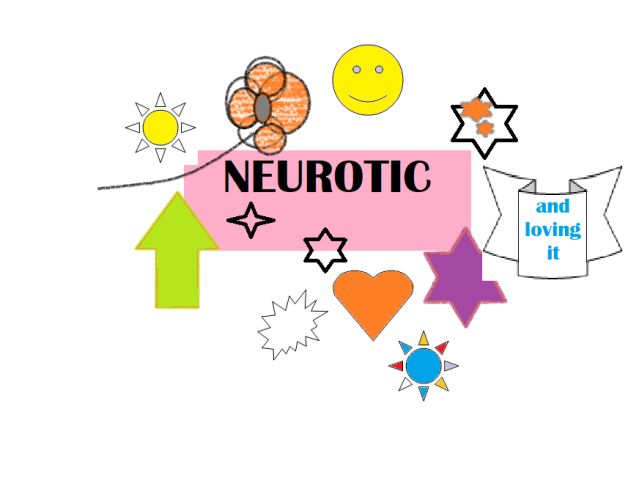Neuroticism
The Advantages of Being Neurotic
There is a bright side to neuroticism.
Posted August 13, 2023 Reviewed by Jessica Schrader
Key points
- Neuroticism shouldn't be regarded as a purely negative dimension.
- People with low levels of neuroticism find it easier to move on after a failure or painful event.
- Having neurotic traits could provide a level of psychological insight that is helpful for comic effect.

At first sight, a high level of neuroticism isn't a particularly desirable personality trait. It is associated with anxiety and worrying, which can be very difficult to bear at times. Those with sunnier dispositions appear to be able to sail through life without a black anxious cloud constantly hanging over them. We worriers often regard them with envy.
The Worrying Strategy
Worrying is clearly unpleasant, and it is meant to be unpleasant; otherwise, it wouldn't be effective as a danger-avoidance and problem-solving strategy. Like pain, it is supposed to warn us that something is—or could be—wrong, and that it needs immediate attention. Anxiety is therefore meant to be alarming and unsettling, in much the same way a baby crying is supposed to be piercing and impossible to ignore. The baby's survival would be threatened if its needs could be easily ignored. The problem, of course, is that anxiety sometimes gets out of hand, and for a very significant proportion of the population this becomes a chronic problem.
There are other possible strategies, as far as dealing with problems and threats is concerned, which don't involve constant worrying. People with low levels of neuroticism may find it easier to move on after a failure or painful event and in this way, they can potentially try a larger number of experiences, some of which will be successful.
But all strategies have advantages and disadvantages. Being an extrovert with low neuroticism isn't always the best-adapted attitude in all circumstances.
The Bright Side of Neuroticism
Once again, worrying, though unpleasant, has a function. Ruminating, which invariably accompanies worrying, may also have a function. Some evolutionary thinkers believe that this is an expression of how we are meant to find logical solutions to difficult problems. It will be the wrong strategy for a person who is actually facing an insoluble problem because persevering in the face of impossible odds is a bad idea. However, having the determination and the need to find a logical solution to a problem is indeed imprinted in our human design and, when applied generally to our species as a whole, this drive will resolve many problems that could otherwise have threatened our survival.
The serious and functional advantages of fretting may be intuitive to some extent, but a bright and cheerful aspect of neuroticism has been found that is more unexpected. A recent article in The Guardian on this subject cites a study by Paul Irwing and colleagues that compared personality traits in professional and amateur comedians. Both amateurs and professionals showed high openness-to-experience and extraversion, as one would expect, but curiously, professionals had greater neuroticism than the amateurs. This has been interpreted as evidence that having neurotic traits may provide a level of psychological insight that can be then exploited for comic effect.
So, there you are, being neurotic can help you spot dangers, solve problems, and it can even make you funnier. Clearly, then, neuroticism shouldn't be regarded as a purely negative dimension.
References
Irwing P et al, 2020. Pers Soc Psychol Bull 46(4):590-602.


